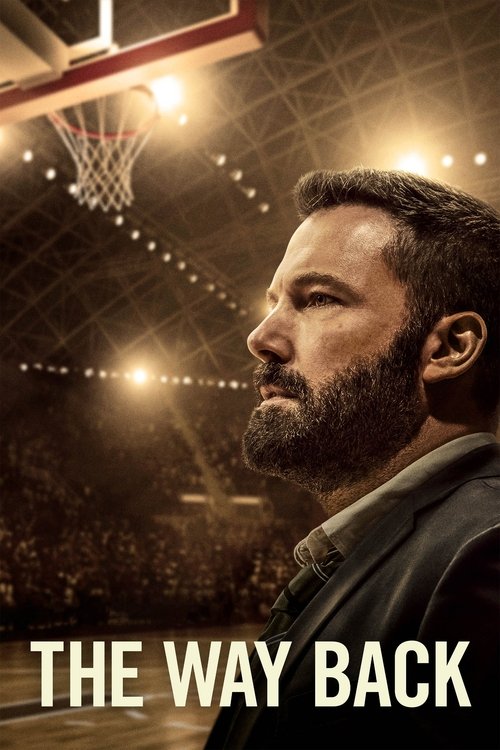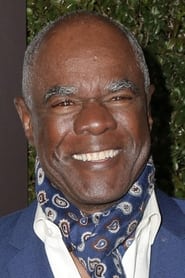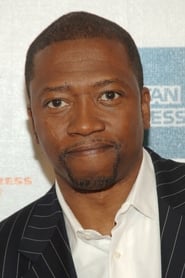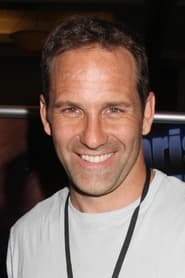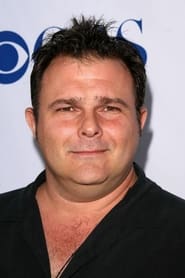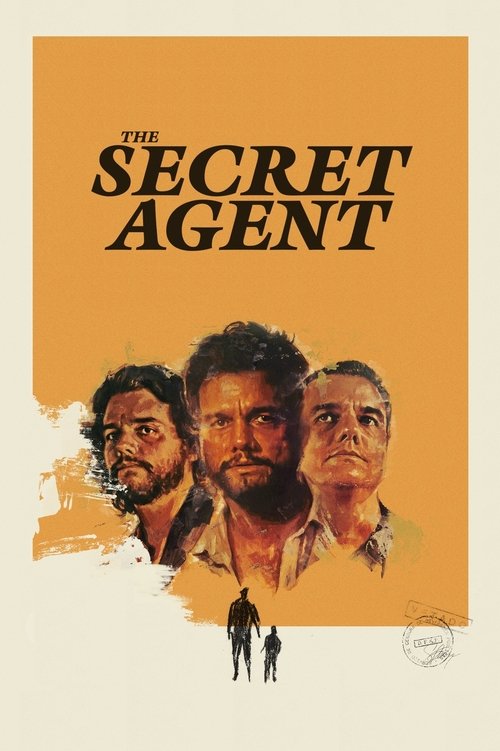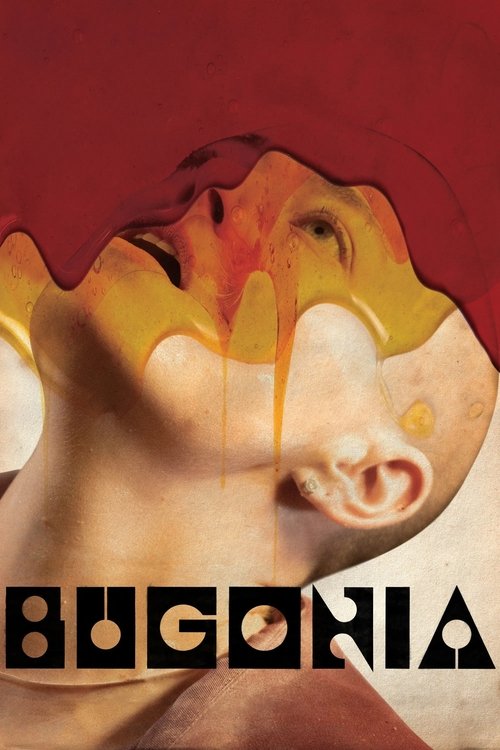
Ask Your Own Question
What is the plot?
Sorry, we aren't able to watch and write up a full detailed plot yet. Check back in a few days.
What is the ending?
In the ending of "The Way Back," Jack Cunningham, the main character, faces his demons and finds a sense of redemption through his connection with the basketball team he has been coaching. After a series of ups and downs, he ultimately decides to step away from coaching to focus on his personal recovery. The film concludes with Jack attending a game, where he watches the team he helped grow, signifying his acceptance of his past and the hope for a better future.
Expanding on the ending, the final scenes unfold in a high school gymnasium, filled with the sounds of sneakers squeaking on the polished wooden floor and the echo of a bouncing basketball. Jack Cunningham, played by Ben Affleck, stands at the sidelines, his expression a mix of pride and bittersweet reflection. The team he has coached, the Bishop Hayes High School basketball team, is in the midst of a crucial game. The atmosphere is electric, with fans cheering and the scoreboard ticking down the final moments.
As the game progresses, Jack's internal struggle is palpable. He has been battling his own demons, including alcoholism and the grief of losing his wife, but through coaching, he has found a sense of purpose and connection. The players, who once saw him as a troubled figure, have come to respect him as a mentor and father figure. They have grown not just in skill but in confidence, embodying the lessons Jack has imparted to them about resilience and teamwork.
In a pivotal moment, the team is down by a few points, and the tension in the gym rises. Jack watches intently, recalling his own past as a player and the dreams he once had. He feels a surge of hope for the boys, who have become more than just a team to him; they represent a chance at redemption for himself. As the clock winds down, the team executes a play that Jack had taught them, showcasing their growth and unity. They score a crucial basket, bringing the game to a tie.
However, as the game reaches its climax, Jack realizes that his own journey is not just about basketball. He has been avoiding his personal issues, and the weight of his past is heavy on his shoulders. In a moment of clarity, he understands that he needs to prioritize his recovery and healing over the game. He steps away from the sidelines, leaving the coaching duties to focus on himself, acknowledging that he cannot help others if he does not help himself first.
The final scene shifts to Jack sitting in the stands, watching the last moments of the game unfold. The camera captures his face, a mixture of pride and sorrow, as he sees the team rally together, fighting for victory. The game ends with the team winning, and the gym erupts in celebration. Jack smiles, feeling a sense of fulfillment as he witnesses their triumph, knowing he played a part in their journey.
As the credits roll, we see glimpses of Jack's life post-coaching. He is shown attending support meetings, working on his sobriety, and slowly rebuilding his life. The film closes with a sense of hope, emphasizing that while the path to healing is long and fraught with challenges, it is possible to find redemption and purpose again. The fate of the main characters reflects their growth: Jack is on a path to recovery, the team has bonded and achieved success, and they all have learned valuable lessons about resilience, community, and the importance of facing one's struggles head-on.
Is there a post-credit scene?
The movie "The Way Back," produced in 2020, does not have a post-credit scene. The film concludes with a poignant ending that encapsulates the journey of the main character, Jack Cunningham, played by Ben Affleck. After a tumultuous path of personal struggles, including battling alcoholism and grappling with the loss of his family, Jack finds a sense of purpose and redemption through coaching a high school basketball team.
The final moments of the film focus on Jack's emotional growth and the relationships he has built with his players. As the credits roll, the audience is left with a sense of closure regarding Jack's journey, emphasizing themes of resilience, healing, and the impact of mentorship. There are no additional scenes or content after the credits that extend the story or provide further insight into the characters.
What is Jack Cunningham's backstory and how does it affect his character throughout the film?
Jack Cunningham, played by Ben Affleck, is a former high school basketball star whose life took a downward spiral after the death of his younger brother. This tragedy leads him to struggle with alcoholism and a sense of purposelessness. His backstory is revealed through flashbacks and conversations, showcasing his once-promising future and the deep emotional scars that haunt him. His internal conflict drives much of the narrative, as he grapples with his past while trying to find redemption through coaching.
How does Jack's relationship with the basketball team evolve over the course of the film?
Initially, Jack is distant and struggles to connect with the team, reflecting his own emotional turmoil. However, as he begins to invest in the players, particularly in their personal struggles and aspirations, he forms a bond with them. This evolution is marked by moments of vulnerability, such as when he shares his own experiences with loss and failure. The team's growth mirrors Jack's journey towards healing, culminating in a sense of mutual support and understanding.
What role does Jack's estranged relationship with his father play in the story?
Jack's estranged relationship with his father adds another layer to his character's emotional depth. His father, who is disappointed in Jack's life choices, represents the expectations and pressures Jack feels. Their interactions are tense and filled with unspoken resentment, highlighting Jack's feelings of inadequacy and failure. This strained relationship serves as a catalyst for Jack's journey, pushing him to confront his past and seek reconciliation, both with his father and within himself.
How does the film depict Jack's struggle with alcoholism?
Jack's struggle with alcoholism is portrayed with raw honesty throughout the film. His dependency is shown through various scenes where he seeks solace in drinking, often leading to reckless behavior and emotional outbursts. The film does not shy away from the consequences of his addiction, including strained relationships and moments of isolation. Jack's journey towards sobriety is a central theme, as he battles his demons while trying to be a positive influence on the team.
What significance does the final game hold for Jack and the team?
The final game serves as a pivotal moment for both Jack and the team, symbolizing not just a chance for victory but also a culmination of their collective growth. For Jack, it represents a moment of redemption, where he can finally step out of the shadows of his past and embrace his role as a mentor. The emotional stakes are high, as the team rallies together, showcasing their development and unity. The game becomes a metaphor for overcoming adversity, both personally for Jack and collectively for the players.
Is this family friendly?
"The Way Back," produced in 2020, is not considered family-friendly due to its mature themes and content. Here are some potentially objectionable or upsetting aspects that may affect children or sensitive viewers:
-
Substance Abuse: The protagonist struggles with alcoholism, which is depicted throughout the film. There are scenes showing drinking and the consequences of addiction.
-
Emotional Turmoil: The main character experiences significant emotional pain and trauma, including grief and loss, which may be distressing for younger viewers.
-
Violence: There are moments of physical altercations and aggressive behavior, reflecting the protagonist's inner turmoil and struggles.
-
Strong Language: The film contains frequent use of strong language, which may not be suitable for children.
-
Themes of Loss and Grief: The narrative explores heavy themes related to personal loss, which could be upsetting for sensitive audiences.
These elements contribute to the film's overall tone and may not be appropriate for all viewers, particularly younger children.

